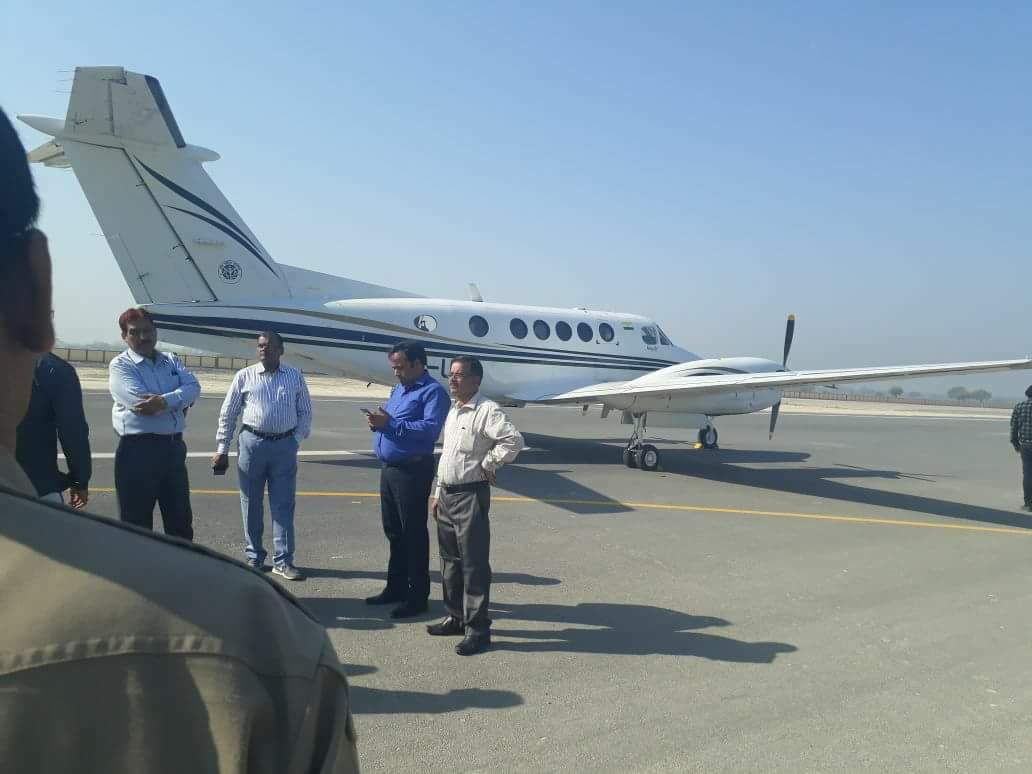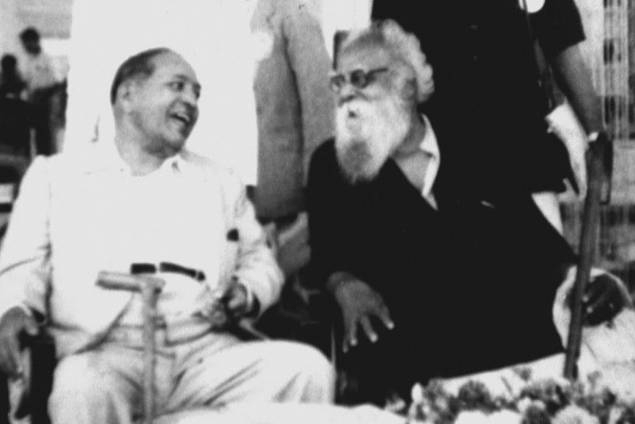|
Lalai Singh Yadav
Lalai Singh Yadav (1921-1993) was a policeman in paramilitary who became a social justice activist and play writer. He wrote plays like ''Shambhuk Vadh''. He translated Periyar E. V. Ramasamy's ''The Key To Understanding True Ramayan'' from Tamil to Hindi as ''Sachi Ramayan Ki Chabi''. In 1962, he wrote a book entitled ''Baman Vadi Rajya Mein Shoshito Par Rajnaitik Dakaiti''. He fought a free speech case against the UP Government on his book ban. Apart from translating True Ramayan, he wrote 5 plays as well, including one on Aṅgulimāla, Shambuka, and Ekalavya. Convertion to Buddhism Lalai Singh Yadav was an Ambedkarite Buddhist. He renounced Hinduism in 1967 and embraced Buddhism. After adopting Buddhism, he removed the word Yadav from his name. His deep anti-caste consciousness was working behind the removal of the word Yadav. See also * A.R. Akela *Periyar Erode Venkatappa Ramasamy (17 September 1879 – 24 December 1973), revered as Periyar or Thanth ... [...More Info...] [...Related Items...] OR: [Wikipedia] [Google] [Baidu] |
Kanpur Dehat District
Kanpur Dehat district is a district in Uttar Pradesh state in northern India. The administrative headquarters of the district are at Mati- Akbarpur. This district is part of Kanpur division. Kanpur was formerly spelled Cawnpore. History The site of the Battle of Madarpur, fought between the Bhumihar zamindars and the Mughal Empire in 1528CE took place within the present-day Kanpur Dehat district. Kanpur District was divided into two districts, namely Kanpur Nagar and Kanpur Dehat in year 1977. The two were reunited again in 1979 and again separated in 1981. Uttar Pradesh government decided to rename Kanpur Dehat district as Ramabai Nagar district on 1 July 2010. In July 2012, it was returned to Kanpur Dehat. Tehsils in Kanpur Dehat district # Akbarpur # Bhognipur # Derapur #Rasulabad #Sikandara #Maitha Political representatives Legislative Council Legislative Assembly Parliamentary constituencies Transport The district is well connected by railways. Three rail t ... [...More Info...] [...Related Items...] OR: [Wikipedia] [Google] [Baidu] |
Periyar
Erode Venkatappa Ramasamy (17 September 1879 – 24 December 1973), revered as Periyar or Thanthai Periyar, was an Indian social activist and politician who started the Self-Respect Movement and Dravidar Kazhagam. He is known as the 'Father of the Dravidian movement'. He rebelled against Brahminical dominance and gender and caste inequality in Tamil Nadu.Thakurta, Paranjoy Guha; Shankar Raghuraman (2004). ''A Time of Coalitions: Divided We Stand''. Sage Publications. New Delhi. p. 230. . Since 2021, the Indian state of Tamil Nadu celebrates his birth anniversary as 'Social Justice Day'. Ramasamy joined the Indian National Congress in 1919, but resigned in 1925 when he felt that the party was only serving the interests of Brahmins. He questioned the subjugation of non-Brahmin Dravidians as Brahmins enjoyed gifts and donations from non-Brahmins but opposed and discriminated against non-Brahmins in cultural and religious matters. In 1924, Ramasamy participated in non-vio ... [...More Info...] [...Related Items...] OR: [Wikipedia] [Google] [Baidu] |
Dramatists And Playwrights From Uttar Pradesh
A playwright or dramatist is a person who writes plays. Etymology The word "play" is from Middle English pleye, from Old English plæġ, pleġa, plæġa ("play, exercise; sport, game; drama, applause"). The word "wright" is an archaic English term for a craftsman or builder (as in a wheelwright or cartwright). The words combine to indicate a person who has "wrought" words, themes, and other elements into a dramatic form—a play. (The homophone with "write" is coincidental.) The first recorded use of the term "playwright" is from 1605, 73 years before the first written record of the term "dramatist". It appears to have been first used in a pejorative sense by Ben Jonson to suggest a mere tradesman fashioning works for the theatre. Jonson uses the word in his Epigram 49, which is thought to refer to John Marston: :''Epigram XLIX — On Playwright'' :PLAYWRIGHT me reads, and still my verses damns, :He says I want the tongue of epigrams ; :I have no salt, no bawdry he doth me ... [...More Info...] [...Related Items...] OR: [Wikipedia] [Google] [Baidu] |
Converts To Buddhism From Hinduism
Religious conversion is the adoption of a set of beliefs identified with one particular religious denomination to the exclusion of others. Thus "religious conversion" would describe the abandoning of adherence to one denomination and affiliating with another. This might be from one to another denomination within the same religion, for example, from Baptist to Catholic Christianity or from Sunni Islam to Shi’a Islam. In some cases, religious conversion "marks a transformation of religious identity and is symbolized by special rituals". People convert to a different religion for various reasons, including active conversion by free choice due to a change in beliefs, secondary conversion, deathbed conversion, conversion for convenience, marital conversion, and forced conversion. Proselytism is the act of attempting to convert by persuasion another individual from a different religion or belief system. Apostate is a term used by members of a religion or denomination to refer t ... [...More Info...] [...Related Items...] OR: [Wikipedia] [Google] [Baidu] |
Indian Social Workers
Indian or Indians may refer to: Peoples South Asia * Indian people, people of Indian nationality, or people who have an Indian ancestor ** Non-resident Indian, a citizen of India who has temporarily emigrated to another country * South Asian ethnic groups, referring to people of the Indian subcontinent, as well as the greater South Asia region prior to the 1947 partition of India * Anglo-Indians, people with mixed Indian and British ancestry, or people of British descent born or living in the Indian subcontinent * East Indians, a Christian community in India Europe * British Indians, British people of Indian origin The Americas * Indo-Canadians, Canadian people of Indian origin * Indian Americans, American people of Indian origin * Indigenous peoples of the Americas, the pre-Columbian inhabitants of the Americas and their descendants ** Plains Indians, the common name for the Native Americans who lived on the Great Plains of North America ** Native Americans in the Uni ... [...More Info...] [...Related Items...] OR: [Wikipedia] [Google] [Baidu] |
Indian Buddhists
Indian or Indians may refer to: Peoples South Asia * Indian people, people of Indian nationality, or people who have an Indian ancestor ** Non-resident Indian, a citizen of India who has temporarily emigrated to another country * South Asian ethnic groups, referring to people of the Indian subcontinent, as well as the greater South Asia region prior to the 1947 partition of India * Anglo-Indians, people with mixed Indian and British ancestry, or people of British descent born or living in the Indian subcontinent * East Indians, a Christian community in India Europe * British Indians, British people of Indian origin The Americas * Indo-Canadians, Canadian people of Indian origin * Indian Americans, American people of Indian origin * Indigenous peoples of the Americas, the pre-Columbian inhabitants of the Americas and their descendants ** Plains Indians, the common name for the Native Americans who lived on the Great Plains of North America ** Native Americans in the Uni ... [...More Info...] [...Related Items...] OR: [Wikipedia] [Google] [Baidu] |
Indian Male Dramatists And Playwrights
Indian or Indians may refer to: Peoples South Asia * Indian people, people of Indian nationality, or people who have an Indian ancestor ** Non-resident Indian, a citizen of India who has temporarily emigrated to another country * South Asian ethnic groups, referring to people of the Indian subcontinent, as well as the greater South Asia region prior to the 1947 partition of India * Anglo-Indians, people with mixed Indian and British ancestry, or people of British descent born or living in the Indian subcontinent * East Indians, a Christian community in India Europe * British Indians, British people of Indian origin The Americas * Indo-Canadians, Canadian people of Indian origin * Indian Americans, American people of Indian origin * Indigenous peoples of the Americas, the pre-Columbian inhabitants of the Americas and their descendants ** Plains Indians, the common name for the Native Americans who lived on the Great Plains of North America ** Native Americans in the Un ... [...More Info...] [...Related Items...] OR: [Wikipedia] [Google] [Baidu] |
Dalit Studies
Dalit studies is a new field of research in India which looks at the problem of marginalised groups, namely Dalits, tribals, religious minorities, women from excluded groups, denotified tribes, physically challenged and similar groups in economic, social and political spheres. Dalit studies scholars also undertake research on the nature and forms of discrimination and social exclusion faced by marginalised groups. The broad objectives of Dalit studies can be delineated as follows: *To undertake research to develop an understanding of the consequences of social exclusion and discrimination on economic growth and poverty, education, health, political participation and on the well-being of the marginalised social groups. *To undertake research on policies to overcome discrimination, particularly 'exclusion and discrimination-induced deprivation' and its consequences. *To provide knowledge support to policy-making bodies to develop inclusive policies. *To provide knowledge support ... [...More Info...] [...Related Items...] OR: [Wikipedia] [Google] [Baidu] |
Yadav
Yadav refers to a grouping of traditionally non-elite, Quote: "The Yadavs were traditionally a low-to-middle-ranking cluster of pastoral-peasant castes that have become a significant political force in Uttar Pradesh (and other northern states like Bihar) in the last thirty years." peasant- pastoral communities or castes in India that since the 19th and 20th centuries Quote: "In a not dissimilar way the various cow-keeping castes of northern India were combining in 1931 to use the common term of Yadava for their various castes, Ahir, Goala, Gopa, etc., and to claim a Rajput origin of extremely doubtful authenticity." have claimed descent from the mythological king Yadu as a part of a movement of social and political resurgence. Quote: "The movement, which had a wide interregional spread, attempted to submerge regional names such as Goala, Ahir, Ahar, Gopa, etc., in favour of the generic term Yadava (Rao 1979). Hence a number of pastoralist castes were subsumed under Yadava, in ... [...More Info...] [...Related Items...] OR: [Wikipedia] [Google] [Baidu] |



.jpg)
